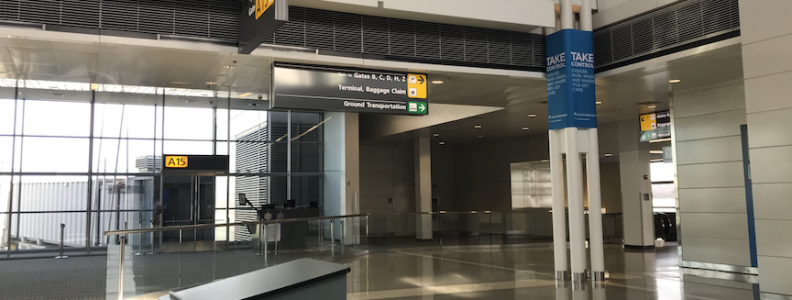
TSA Changes You Need to Know Before Flying During the Coronavirus Pandemic
Flying during the coronavirus pandemic can feel daunting and stressful, especially because there seem to be constantly changing procedures, protocols and new safety measures that vary between each airline and airport. The airport injury law team at Abrams Landau law wants to help mitigate as much anxiety and stress as possible for those who may be traveling by providing helpful information to the public. You can read an interview we had with a current client who works as a security personnel at Dulles International Airport (IAD) here and read more about some of the requirements you may expect on airplanes here.
The Transportation Security Administration (TSA) announced several changes to the airport screening process recently. Surprisingly, a program to implement temperature checks for passengers, which was widely expected to be introduced soon, was not included in these changes. The new procedures are expected to be rolled out nationwide by mid-June, 2020.
Some of the changes are:
• Travelers will be asked to social distance while in line for security and there will be markings on the floor to indicate how to spread out, as well as staggering checkpoints where possible
• Passengers will hold on to their boarding passes and scan them themselves on the barcode scanner, rather than handing them to a TSA officer
• Travelers are encouraged to wear facial coverings while in the airport and at security. They may be asked to briefly take them off for identification checks at the screening checkpoints. All US airlines are requiring passengers to wear masks while on board. Read more here.
• People traveling with food—which may be a large majority as many airlines have stopped offering food due to COVID-19 safety precautions—should place it in a clear plastic bag and put it in a separate bin before it goes through the X-ray machine. According to the TSA, food items “often trigger an alarm during the screening process; separating the food from the carry-on bag lessens the likelihood that a TSA officer will need to open the carry-on bag and remove the food items for a closer inspection.” Also, be sure to check the list of what specific foods you can and cannot bring on board. You can see that here on the TSA website.
• Passengers can take up to 12 ounces of hand sanitizer through checkpoints, but other liquids are still restricted to 3.4 ounces. If a bag is found to contain a prohibited item, passengers may be sent outside of security with their bag to dispose of the item, instead of opening their bag and having it inspected by a screener in order to reduce contact between screeners and the bags’ contents.
Additionally, the TSA will begin enforcing the Real ID requirement starting October 1, 2021. In March, the government moved the enforcement date from this October in 2020 to next year because of the pandemic. Read more about Real ID here.
If you or someone you know was injured either while traveling or working at an airport or airplane, please give us a call (703-796-9555) or email us at Abrams Landau, Ltd.
